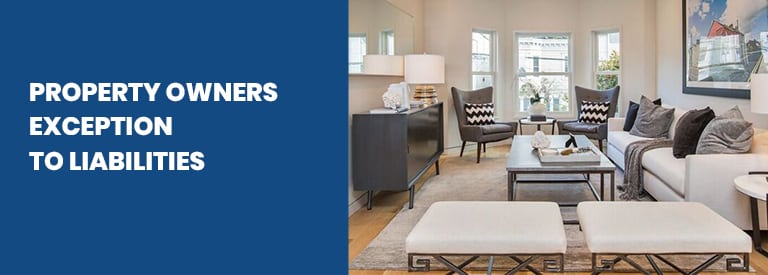When you’re out shopping or at the movies, you don’t expect any harm to come to you at a place of business. If you’re injured, can the owner be held liable?
Everyone has a reasonable expectation not to be injured when visiting someone else’s property. In Ontario, if a property owner hasn’t been responsible for keeping others safe, then they can be held liable.
When visiting someone’s property, an injury resulting from slipping and falling due to unsafe conditions isn’t uncommon. The owner could be liable for the damages arising from this incident. These claims are known as “occupiers’ liability” claims.
You may wonder: what is ‘occupiers’ liability’?
What is the Occupiers’ Liability Act?
This act enforces a duty of care on the property’s occupier to ensure that all visitors are reasonably safe when visiting their premises. An occupier could be considered someone who has adequate control over the premises and could be more than one person.
If any accidents result from the property’s unsafe conditions, the act will deal with the liabilities that arise from it.
The ‘duty of care’ imposed by the Occupiers’ Liability Act Ontario on the occupier ensures that visitors to the premises are reasonably safe at all times. The occupier should match the standard of care of a ‘reasonable occupier’ to the common law negligence standard of care.
What are Property Owners’ Legal Obligations Under the Occupier’s Liability Act?
An occupier can be defined as someone who has a level of control over the premises. They don’t need to reside on the property. The act also doesn’t define the occupier as the legal owner. Since this owner has a degree of control of the property, they could be seen as an occupier.
The owner and/or occupier has a responsibility to safeguard you as a visitor to their premises. These premises can include land, buildings, aircraft, vessels, and vehicles.
Examples of premises are listed below:
- Private homes and cottages
- Apartments and hotels
- Parking lots
- Schools
- Amusement parks
- Healthcare facilities
- Factories and offices
- Stores and restaurants
- Boats and travel trailers.
The owners of properties aren’t just responsible for maintaining their premises but also ensuring that their tenants and visitors are safe.If injuries occur due to a hazard that the tenant had control over, they could be held liable.
Property Owners Exception to Liabilities
 If you were injured, the owner or occupier might not always be liable. If you were reckless and it resulted in your injury, then the owner might not be liable.
If you were injured, the owner or occupier might not always be liable. If you were reckless and it resulted in your injury, then the owner might not be liable.
- Other exceptions are:
- The visitor assumes the risk, and there’s no intention from the occupier to inflict harm on anyone.
- A trespasser assumes any risk when entering the premises.
- A contractor can be held liable if their work at the premises caused the victim’s injuries.
- The injured party could be responsible for their condition due to being under the influence and behaving in a manner that the owner couldn’t have foreseen.
- Entering recreational areas for free is done at your own risk. These areas include private roads, forests, and farms.
The owner can still be liable if the injured party is a minor and the injury is due to circumstances that the owner should have foreseen.
The following are examples of civil suits against homeowners:
- Infrastructure in need of repair.
- Where there was no inspection for hazards, or no visible signage of potential risks, including drowning
- Inadequate lighting
If you or a loved one have been injured on an unsafe property or because of another person’s negligence, contact the personal injury lawyers at Diamond and Diamond Law, who can represent you in any claim for compensation you may have. Call 1-800-567-HURT today for a free consultation!
Compensation for Injuries Due to an Unsafe Property
If your injury is due to an accident caused by someone’s negligence, you’re entitled to compensation.
Possible compensations are:
- Loss of past and future income, medical expenses and rehabilitation, as well as pain and suffering.
- Regarding the Family Law Act, family members could qualify for benefits depending on the circumstances.
- If a party’s injuries occurred while breaking the law, the owner or landlord would be held liable.
Get Legal Help from Diamond and Diamond Experienced Lawyers
You don’t have to be concerned about compensation after being injured on someone’s property. You’re covered by the occupiers’ liability claim, whether you’re a guest on the premises or a trespasser.
The experienced lawyers from Diamond and Diamond can assist those injured on an unsafe property. Call 1-800-567-HURT today!
“If you are hosting a party on your property, be careful not to serve too much alcohol to individuals because it can cause an injury that should have been foreseeable.”
Pro Tip